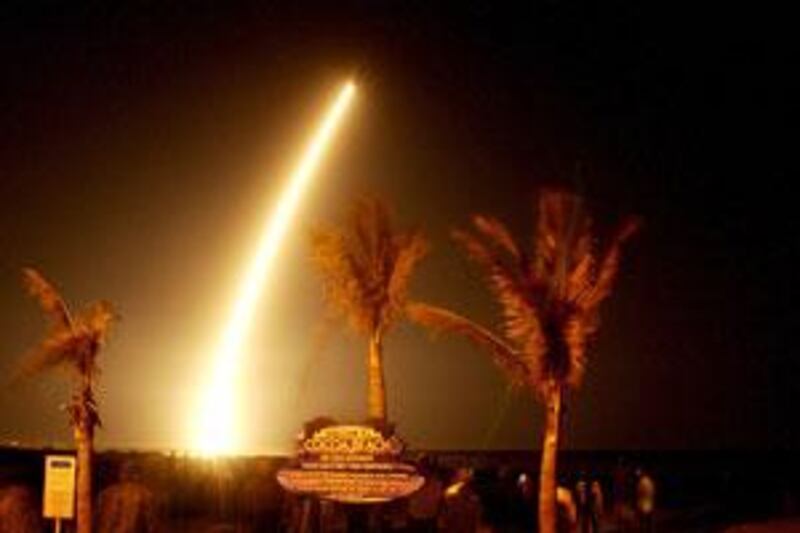The United States has launched a space telescope whose three-year mission is to find Earth-like planets in the Milky Way galaxy. The Kepler space telescope launched by Nasa has now reached orbit, the US space agency said. Kepler will stare at the same spot in space for three and a half years, taking in about 100,000 stars around the Cygnus and Lyra constellations of the Milky Way. At a cost of nearly US$600 million (Dh2,203.8m), it will be Nasa's first mission in search of Earth-like planets orbiting suns similar to ours, at just the right distance and temperature for life-sustaining water to exist.
"This mission attempts to answer a question that is as old as time itself ? are other planets like ours out there?" said Ed Weiler, associate administrator for Nasa's Science Mission Directorate. "It's not just a science mission, it's an historical mission." The telescope will be hunting for relatively small planets that are neither too hot nor too cold, are rocky and have liquid water ? essential life-sustaining conditions ? explained William Borucki, Kepler's principal investigator based at Nasa's Ames Research Center in California.
"If we find that many, it certainly will mean that life may well be common throughout our galaxy, that there is an opportunity for life to have a place to evolve," Mr Borucki said. Equipped with the largest camera ever launched into space ? a 95-megapixel array of charge-coupled devices ? the Kepler telescope is able to detect the faint, periodic dimming of stars that planets cause as they pass by.
"If Kepler were to look down at a small town on Earth at night from space, it would be able to detect the dimming of a porch light as somebody passed in front," according to Kepler project manager James Fanson. * AFP






